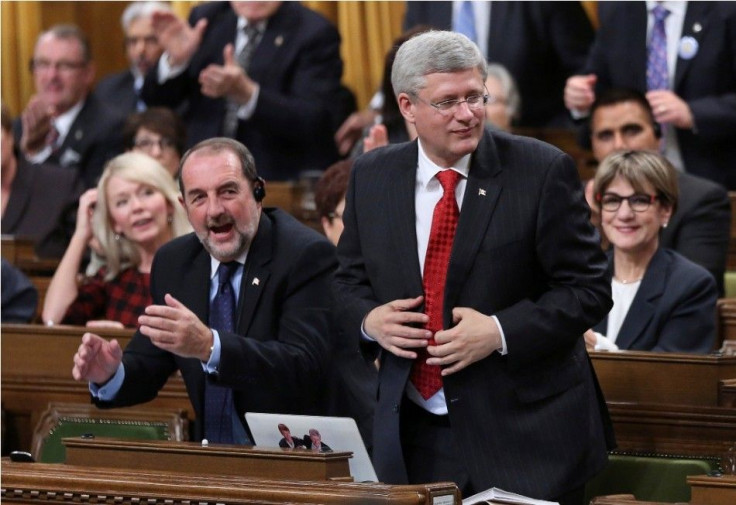Canada Urges EU For Early Conclusion Of FTA At G7 Summit In Germany

Canada’s Prime Minister Stephen Harper used the G7 summit in Germany to push European leaders for a speedy ratification of the Comprehensive Canada-EU free trade agreement known as CEFTA. According to the PM’s office, Mr Harper “talked up” the trade pact at the G7 working session on June 7. “Prime Minister Harper encouraged European members of the G7 to swiftly implement the job-creating Canada-EU trade agreement," the office said.
In this regard, important meetings were held by Mr Harper in Germany with European Council President Donald Tusk and European Commission President Jean-Claude Juncker. The PM urged them for an early conclusion of the deal. Both Canada and EU had arrived at an in-principle trade agreement in goods and services. But the legal text has been a bone of contention between the two, and needs fine tuning before being ratified by Canada and the EU's 28-member countries.
CETA Ratification
For Mr Haper, clinching the CETA would be a major political gain as he is going to face a federal election in October. Even before the summit, the PMO had said, the prime minister would be using all his meetings with European leaders to push for CETA.
Among other important meetings held by Mr Harper, the one with British Prime Minister David Cameron was significant. They discussed the measures needed to grow the fragile global economy and also touched upon the security scenario with respect to Ukraine crisis and Russia, and also the threat from Islamic militants like ISIS in Iraq and Syria.
Stopover in Ukraine
Before arriving in Germany’s scenic Bavaria for the G7 meet, Mr Harper had a stopover at Kiev and assured Ukrainian leaders that he would push for an early solution to their conflict with Russia. In Bavaria, the leaders of Germany, Britain, Canada, France, Italy, Japan and the U.S., along with European officials, got down to work at the Schloss Elmau hotel. Germany hosted the summit with hopes to secure commitments from G7 guests to tackle global warming and overcome resistance from Japan and Canada on the matter of ceasing fossil fuels.
Fossil Free Era
Meanwhile, the important outcome for Canada in G7 became its decision to go along with other Group leaders in pledging to stop fossil fuels by the end of the century. However, some Canadian officials played down the promise as an “aspirational” target and PM Harper said it will be reached through advances in technology.
The final communiqué of G7 leaders made a call to end fossil-fuels by the global economy and induce maximum cuts to greenhouse-gas emissions by 2050. However, analysts say that the final G7 statement represented a watered-down version of what Ms Angela Merkel had envisaged, which was to be a strong commitment to usher in a low-carbon economy and curb the use of fossil fuels by 2050.
(For feedback/comments, contact the writer at k.kumar@ibtimes.com.au)





















